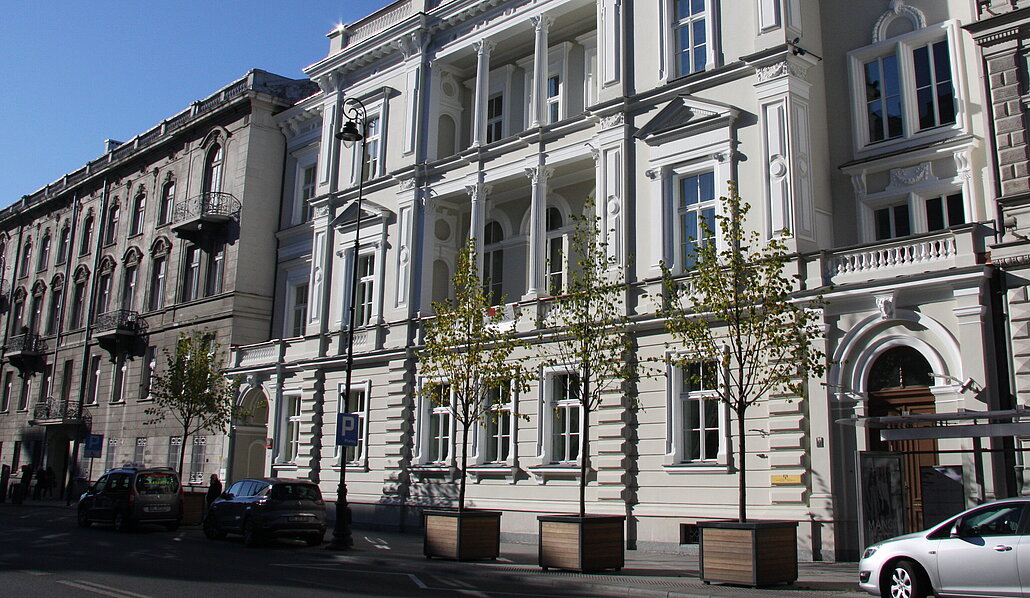International conference: "Centenary of the Locarno Treaties and Collective Security Policy in Europe: Reality – Reflection – Reassessment – Re-establishment?"
Date
24–25 October 2024, Pilsen, Czech Republic
Organizing institutions
German Historical Institute Warsaw
Charles University
Philipps-University Marburg
University of West Bohemia
Conference languages: English, German
Annotation
In October 1925, seven international treaties were concluded in Locarno and signed in London on 1 December 1925. Germany was admitted to the League of Nations in September 1926. The Locarno Conference was attended by Reich Chancellor Hans Luther and German Foreign Minister Gustav Stresemann, Austen Chamberlain for Great Britain, Aristide Briand for France, Émile Vandervelde for Belgium, and, briefly, Edvard Beneš for Czechoslovakia, Aleksander Skrzyński for Poland and Benito Mussolini for Italy. For European security policy since the Peace Treaty of Versailles, the de-militarisation of the Rhineland, the securing of Germany’s western borders and options for its eastern borders, and last but not least the Soviet Union’s perspective on Central Europe, the treaties laid important foundations for Europe within the framework of the League of Nations. They were based on the principle of peaceful conflict resolution and were designed to take account of different security needs. Arbitration and defence treaties contributed to this. However, the Locarno Treaties were not without controversy and led, for example, to the resignation of the German nationalist ministers in October 1925. In conjunction with the Treaties of Rapallo (April 1922) and Berlin (April 1926), they reflect German power and security policy, which defied clear Western or Eastern European categorisation. The potential for revisionist demands in the form of the return of German colonial territories, the shifting of the German eastern border and a possible unification of Austria with the German Reich was as much a part of the policy of understanding as was the conciliatory “spirit of Locarno,” but ended abruptly with the occupation of the Rhineland in 1936.
Under the central question of security in political, economic, social, and military terms, the conference will examine the international significance and impact of the Treaties of Locarno in their historical long-term perspective and discuss how and whether they can be understood today, almost one hundred years later, as part of the European dynamics of security policy. Contributions will focus on the treaty-based security system in Central Europe in the 1920s and the diplomatic negotiations from a transnational perspective.
Selected papers will be printed in a conference collective monograph, planned for issue in 2025/2026. The organizers will cover accommodation.
Please send proposals of contributions – title, abstract (no longer than 300 words), CV – by 29 February 2024 to the following email address: conference2024@ff.cuni.cz
Organizers
Jaromír Mrňka, German Historical Institute Warsaw
Benedikt Stuchtey, Department of History and Cultural Studies, Department of Modern History, Philipps-University Marburg
Lukáš Novotný, Department of Historical Sciences, Faculty of Arts, University of West Bohemia
Václav Horčička, Institute of World History, Faculty of Arts, Charles Universit
Jaroslav Valkoun, Institute of World History, Faculty of Arts, Charles University






